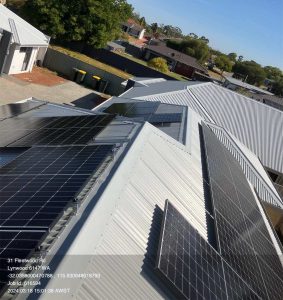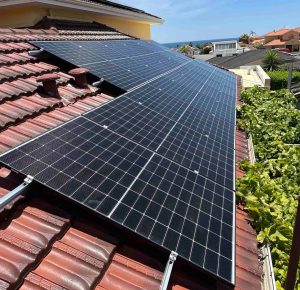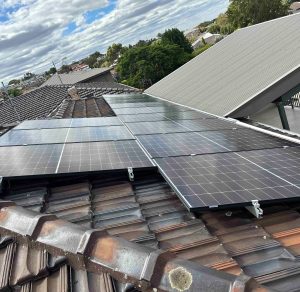We can see the increasing demand for Electric vehicles in future With a hue and cry for a clean environment. In 2019 EVs made only 0.6 percent of new car sales. Comparing to combustion engine vehicles, this is much less. There is a change in trend as the number of EVs sold in Australia has tripled. The number of EVs sold in 2018 is 2,216 whereas in 2019 it has become 6618. There are 28 electric models now on sale, including eight below $65,000.
The adoption of electric vehicles in Australia is driven by customer demand due to the lack of government policies. Government should provide attractive incentives to support the adoption and deployment of low or zero-emission vehicles. Victoria is Australia’s most important electric vehicle market with the most electric vehicle purchases in Australia between 2011 and 2017 with a total of 1,324 car sales. Victoria has the most electric vehicle chargers in the country.
Benefits of adopting EVs
Away from pollution borne diseases
The second-largest source of climate pollution in Australia is transportation. It makes up to nearly 19 percent of greenhouse emissions. Emissions from cars and trucks are bad for our planet and our health. Air pollutants from gasoline- and diesel-powered vehicles cause asthma, bronchitis, cancer, and even premature death. The long-term health impacts of localized air pollution last a lifetime, with the effects borne out in asthma attacks, lung damage, and heart conditions.
Reduce carbon footprint
EVs have a smaller carbon footprint compared to fuel-powered vehicles. The carbon footprint of driving an electric vehicle depends on the source of its electricity. Electric vehicles are more efficient in converting energy to power cars and trucks. Electricity across the board is cleaner and cheaper as a fuel for vehicles, even when that electricity comes from the dirtiest grid.
EVs can help reduce Australia’s carbon emissions and therefore contribute to the efforts to combat climate change. Throughout their entire lifetime EVs are better for the climate. In the manufacturing process, electric vehicles will produce 15% more global warming emissions than the average gasoline vehicle. Electric cars’ large lithium-ion batteries require a lot of materials and energy to build. Electric vehicles make up for their higher manufacturing emissions within eighteen months of driving and continue to outperform gasoline cars until the end of their lives. EVs are zero-emission vehicles. Moreover, electric vehicles is that many can be recharged wherever they make their home, at one’s home or even a bus terminal
Economic Transportation
The economic benefits are also in favour of EVs. The owners don’t have to worry about petrol costs anymore. It will play an integral role in the future of our electricity system. Since electric vehicles are cheaper to operate and maintain and charging this type of car costs about half as much as fueling gasoline-powered cars.
Reduce Noice Pollution
Electric cars help with noise pollution, especially in cities where speeds are generally low. As the cars are far quieter than conventional vehicles, driving electric vehicles create a more peaceful environment for all.
Save your money
Though EVs are more expensive than gas-powered cars, money saved for fuel will make up the margin in long run. Criticisms that puts down EVs are that they have a shorter range than gas-powered cars and that recharging the battery takes time. Fast charging station makes it invalid.
The country’s network of electric vehicle charging stations are also growing, Electric Vehicle Council’s annual report found that there is a rise in the number of faster-charging stations that lets drivers recharge a car in about 15 minutes.
EVs can help the electricity grid by providing flexible storage to help manage demand across the network and by absorbing excess renewable energy generated in the middle of the day and discharging it back to the grid during periods of peak demand. More EVs on the grid would decrease and stabilize rates for all customers. As electric vehicles can store energy in their batteries, they can incorporate more renewable energy on the grid.
A matter of concern is that when there is a significant growth in EV ownership and if everyone charges their cars at the same time in the evening when they are back from work, it could lead to constraints across both the wholesale energy markets and distribution networks. The effects of charging an EV are dependent upon the grid location as well as the time.
Many trials are being done in the field of smart charging, so as to make EVs more accessible to all without affecting the grid. It will help shape the way forward and the role that EVs can play in a future energy world that is smarter, cleaner and more efficient. ARENA funds many automotive and energy partners who work in this regard.
Origin EV smart charging trial
Origin has come up with an EV smart charging trial. According to it the smart chargers can be connected to a Virtual Power Plant (VPP) so we can optimise the charging of these EVs to reduce the impact on peak demand and absorb excess renewable generation during the day. The VPP will direct the chargers to turn on and off and up and down in line with the wholesale price – charging vehicles when prices are low and turning off chargers when the price is higher. We can help bring down the price of running an EV for owners as well as manage demand and load on the system.
The opportunity for the energy sector, for policymakers, regulators and governments are to help provide the right settings that make it easy for customers to realise the benefits of owning an EV. As more electric vehicles hit the market, new recharging solutions will be needed. More charging points in public places will be helpful for people.
EVs can reduce the emissions that contribute to climate change and smog, improving public health and reducing ecological damage. Electric vehicles are ever more appealing in a world where reducing carbon emissions and pollution is a growing concern for many people.









